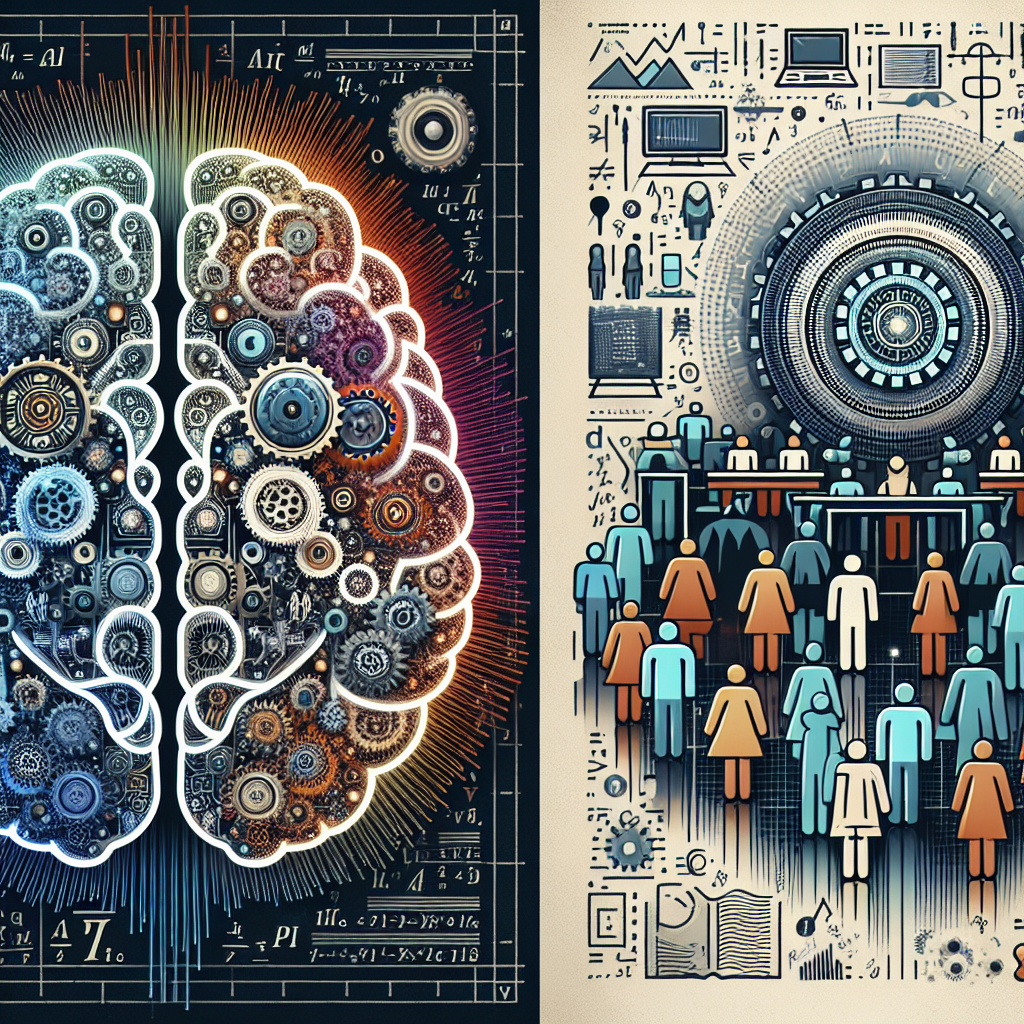The Influence of AI Development in Civic Engagement
Artificial Intelligence (AI) has become an integral part of our daily lives, from virtual assistants on our smartphones to smart home devices that can anticipate our needs. But beyond these consumer applications, AI is also making a significant impact on civic engagement – the involvement of citizens in the decision-making processes of their communities and governments. In this article, we will explore the ways in which AI is shaping civic engagement, the benefits it brings, and the challenges it poses.
AI in Civic Engagement: How it Works
AI technology is being used in various ways to enhance civic engagement. One of the key applications is in data analysis. AI algorithms can quickly process and analyze large amounts of data to identify patterns, trends, and insights that can inform decision-making. This is particularly useful for government agencies and non-profit organizations that deal with vast amounts of data on a daily basis.
AI is also being used to improve communication between citizens and their governments. Chatbots powered by AI can provide instant responses to citizens’ queries, reducing the need for human intervention and speeding up the process of accessing information. This can help to increase transparency and accountability in government operations.
Furthermore, AI is being used to enhance public services. For example, predictive analytics can be used to anticipate demand for services such as public transportation, healthcare, and education, allowing governments to better allocate resources and improve service delivery. AI-powered tools can also help governments to identify and address issues such as traffic congestion, pollution, and crime more effectively.
Benefits of AI in Civic Engagement
The use of AI in civic engagement offers several benefits. One of the key advantages is increased efficiency. AI algorithms can process data and perform tasks much faster than humans, allowing government agencies and non-profit organizations to make more informed decisions in less time. This can lead to cost savings and improved service delivery for citizens.
AI can also help to enhance citizen participation in decision-making processes. By providing instant access to information and services, AI-powered tools can empower citizens to engage more actively in their communities and governments. This can help to create a more inclusive and democratic society where everyone has a voice in shaping the future.
Another benefit of AI in civic engagement is improved decision-making. By analyzing data in real-time and providing insights into trends and patterns, AI can help governments to make more informed decisions that are based on evidence rather than intuition. This can lead to better outcomes for citizens and more effective use of resources.
Challenges of AI in Civic Engagement
Despite the benefits of AI in civic engagement, there are also challenges that need to be addressed. One of the key concerns is the potential for bias in AI algorithms. If the data used to train AI models is biased, the results produced by these models can also be biased. This can lead to unfair treatment of certain groups of people and perpetuate existing inequalities in society.
Privacy is another major concern when it comes to AI in civic engagement. As governments and non-profit organizations collect and analyze large amounts of data on citizens, there is a risk that this data could be misused or compromised. It is important for organizations to implement robust data protection measures to ensure that citizens’ privacy rights are respected.
Furthermore, there are ethical considerations to take into account when using AI in civic engagement. For example, decisions made by AI algorithms may not always align with the values and preferences of citizens. It is important for organizations to be transparent about how AI is being used and to involve citizens in the decision-making process to ensure that their voices are heard.
FAQs
Q: How is AI being used to enhance citizen participation in decision-making processes?
A: AI-powered tools such as chatbots and predictive analytics are being used to provide instant access to information and services, empowering citizens to engage more actively in their communities and governments.
Q: What are some of the benefits of using AI in civic engagement?
A: Some of the key benefits include increased efficiency, improved decision-making, and enhanced citizen participation in decision-making processes.
Q: What are some of the challenges of using AI in civic engagement?
A: Challenges include the potential for bias in AI algorithms, privacy concerns, and ethical considerations related to decision-making by AI algorithms.
Q: How can organizations address the challenges of using AI in civic engagement?
A: Organizations can address these challenges by implementing robust data protection measures, being transparent about how AI is being used, and involving citizens in the decision-making process.
In conclusion, AI is playing an increasingly important role in shaping civic engagement. By leveraging the power of AI technology, governments and non-profit organizations can improve service delivery, enhance citizen participation, and make more informed decisions. However, it is important to address the challenges posed by AI, such as bias, privacy concerns, and ethical considerations, to ensure that the benefits of AI in civic engagement are realized in a fair and responsible manner.

